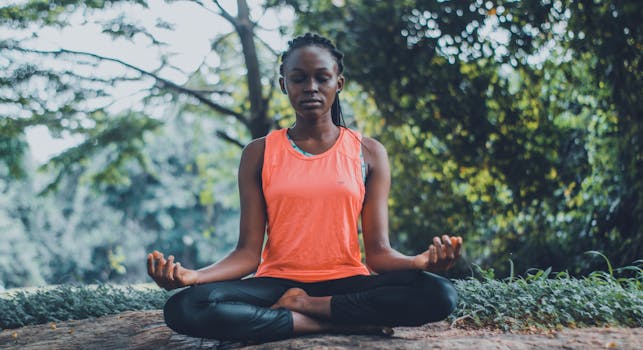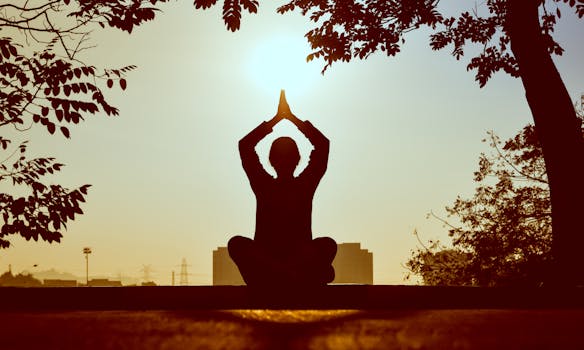
Meditation is a powerful practice that can bring peace, clarity, and balance to your life. For beginners, starting a meditation practice can seem daunting, but with the right guidance, it can become a rewarding and transformative experience. Here are ten tips to help you get started on your meditation journey.
1. Understand What Meditation Is
Why It Matters: Before diving into meditation, it’s essential to understand what it is and what it isn’t. Meditation involves using techniques like mindfulness or focusing on a particular object, thought, or activity to train attention and awareness, achieving a mentally clear and emotionally calm state.
How to Do It:
- Mindfulness Meditation: Focus on your breath and observe your thoughts without judgment.
- Concentration Meditation: Focus on a single point, such as a candle flame or a mantra.
- Body Scan Meditation: Pay attention to different parts of your body, from head to toe.
Benefits:
- Improved focus and concentration
- Reduced stress and anxiety
- Enhanced emotional well-being
2. Start Small
Why It Matters: Starting with short sessions can help you build a sustainable meditation practice. It’s better to meditate for a few minutes every day than to meditate for longer periods sporadically.
How to Do It:
- Set a Timer: Begin with just 5-10 minutes of meditation. Gradually increase the duration as you become more comfortable.
- Consistency: Aim to meditate at the same time each day to build a habit.
Benefits:
- Easier to maintain consistency
- Less overwhelming for beginners
- Builds a strong foundation for longer sessions
3. Create a Comfortable Space
Why It Matters: Having a dedicated space for meditation can help signal to your mind that it’s time to relax and focus. Your space should be quiet, comfortable, and free from distractions.
How to Do It:
- Choose a Quiet Spot: Find a place where you won’t be disturbed. This could be a corner of a room, a spot in your garden, or even a comfortable chair.
- Make It Comfortable: Use cushions, blankets, or a meditation bench to ensure you’re comfortable. The goal is to sit with a straight back, but not to the point of discomfort.
Benefits:
- Easier to focus and relax
- Creates a sense of ritual and routine
- Enhances the overall meditation experience
4. Focus on Your Breath
Why It Matters: Breath awareness is a fundamental aspect of many meditation practices. Focusing on your breath can help anchor your mind and bring you back to the present moment.
How to Do It:
- Deep Breathing: Inhale deeply through your nose, hold for a few seconds, and exhale slowly through your mouth. Pay attention to the sensation of your breath.
- Counting Breaths: Count each inhale and exhale up to ten, then start over. This can help maintain focus.
Benefits:
- Calms the mind and body
- Improves focus and concentration
- Reduces stress and anxiety
5. Observe Your Thoughts
Why It Matters: A common misconception about meditation is that you need to clear your mind of all thoughts. In reality, it’s about observing your thoughts without getting attached to them.
How to Do It:
- Non-Judgmental Observation: When thoughts arise, acknowledge them without judgment and gently bring your focus back to your breath or chosen point of focus.
- Labeling Thoughts: Some people find it helpful to label their thoughts (e.g., “thinking,” “planning,” “worrying”) to create a sense of detachment.
Benefits:
- Reduces reactivity to thoughts
- Enhances self-awareness
- Promotes emotional regulation
6. Use Guided Meditations
Why It Matters: Guided meditations can be particularly helpful for beginners. They provide structure and guidance, making it easier to stay focused and engaged.
How to Do It:
- Apps and Online Resources: Use meditation apps like Headspace, Calm, or Insight Timer, which offer a variety of guided meditations.
- YouTube and Podcasts: There are many free guided meditations available on YouTube and through various podcasts.
Benefits:
- Provides structure and guidance
- Helps maintain focus
- Introduces different meditation techniques
7. Be Patient with Yourself
Why It Matters: Meditation is a skill that takes time to develop. It’s important to be patient and compassionate with yourself as you learn.
How to Do It:
- Accept Imperfection: Understand that it’s normal for your mind to wander. The goal is to gently bring your focus back each time it does.
- Practice Self-Compassion: Treat yourself with kindness and avoid self-criticism. Remember that meditation is a journey, not a destination.
Benefits:
- Reduces self-criticism
- Promotes a positive mindset
- Encourages persistence and consistency
8. Incorporate Movement
Why It Matters: For some people, sitting still for long periods can be challenging. Incorporating movement into your meditation practice can help.
How to Do It:
- Walking Meditation: Focus on the sensation of your feet touching the ground and the rhythm of your steps.
- Yoga or Tai Chi: These practices combine movement with mindfulness and can be a great way to meditate.
Benefits:
- Increases physical awareness
- Reduces restlessness
- Enhances the mind-body connection
9. Set an Intention
Why It Matters: Setting an intention for your meditation practice can provide focus and motivation. It can be as simple as wanting to feel more relaxed or as specific as working on a particular aspect of your life.
How to Do It:
- Choose a Focus: Decide what you want to achieve with your meditation practice. This could be relaxation, clarity, emotional balance, or something else.
- Reflect on Your Intention: Spend a few moments at the beginning of your session reflecting on your intention.
Benefits:
- Provides direction and purpose
- Enhances motivation
- Helps track progress
10. Reflect on Your Practice
Why It Matters: Taking time to reflect on your meditation practice can help you understand what works for you and what doesn’t. It can also provide insights into your progress and areas for improvement.
How to Do It:
- Journaling: Keep a meditation journal where you can write about your experiences, thoughts, and feelings after each session.
- Self-Assessment: Periodically assess your practice. Are you feeling more relaxed? Is it easier to focus? Use these reflections to adjust your practice as needed.
Benefits:
- Enhances self-awareness
- Tracks progress and growth
- Identifies areas for improvement
Starting a meditation practice can be a transformative journey. By understanding what meditation is, starting small, creating a comfortable space, focusing on your breath, observing your thoughts, using guided meditations, being patient with yourself, incorporating movement, setting an intention, and reflecting on your practice, you can build a sustainable and rewarding meditation routine. Remember, the key to success is consistency and self-compassion. Happy meditating!
Weight Loss Made Easy: Delicious Meal Prep Recipes
In today’s fast-paced world, maintaining a healthy diet can be challenging, especially when trying to…
Finding Peace: How to Use Meditation to Relieve Anxiety
Anxiety is a common experience that can affect anyone at any time. It can be…
Serene Mornings: How to Design a Peaceful and Mindful Routine
In today’s fast-paced world, mornings can often feel rushed and stressful. However, starting your day…
Stress-Free Living: Top Meditation Techniques to Calm Your Mind
In today’s quick-paced environment, stress has become a common part of life. However, meditation offers…
Navigating Turkey: Top Scams to Watch Out For and How to Avoid Them
Turkey, with its rich history, stunning landscapes, and vibrant culture, is a popular destination for…
15 Jokes to Brighten Your Day – Part 4
Laughter is the best medicine, and a good joke can brighten anyone’s day. Whether you’re…
Effective Hangover Relief: Strategies to Ease the Morning-After Misery
Waking up with a hangover can be a dreadful experience. The pounding headache, nausea, fatigue,…
Climber Loses Life After Fall at Devils Tower in Wyoming
In a heartbreaking incident, a young rock climber from Eau Claire, Wisconsin, lost his life…
Finding Time for Calm: How to Fit Meditation into Your Busy Life
In the hectic world of today, finding time for self-care can be challenging. However, incorporating…
Hurricane Helene: Powerful Category 4 Storm Threatens Southeastern U.S. with Catastrophic Storm Surge, 130 mph Winds, and Widespread Flooding
Hurricane Helene, a significant tropical cyclone in the 2024 Atlantic hurricane season, developed in the…



